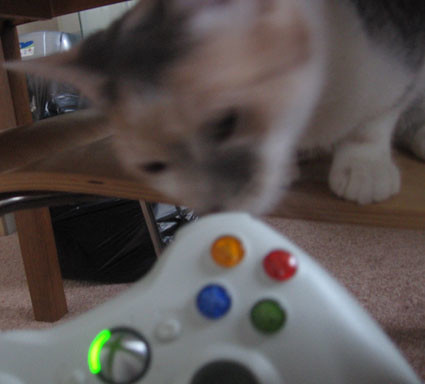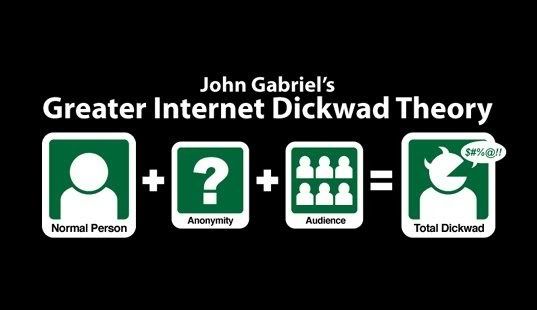
It’s always interesting to get different perspectives on things. I follow quite a few people on Twitter, and some of them have viewpoints on entertainment or politics that diverge from mine to various degrees. But even when I disagree with them, I don’t unfollow them. My personal feelings towards their opinion does not invalidate it; they are perfectly allowed to have it.
That said, I’m having trouble understanding when or how it became so “cool” to hate things.
I’m not talking about despicable things like race hatred or slut shaming, here. I’m more referring to the sort of talk you’d hear out of people that goes something like “Well, I used to like X, but then they did Y, and now I hate them and everything they’ve ever done” or “I don’t like X about this particular game/movie/tv show/book so the rest of it sucks.” The wording may change from conversation to conversation, but the sentiment is always the same: I am correct, this is irredeemably horrible, end of discussion. Most people are intelligent and courteous enough that you can engage them in conversation over these things, but more often than not, such discussions still end with, “Yeah, well, I still hate it.”
And that’s fine. I’m not putting this up in an attempt to invalidate anybody’s opinion. The great thing about individuality is having your own opinion of things, and it’s even better when freedom of speech allows you to give that opinion a voice. It’s when you start shouting to make your voice the most influential one in the room that things can get a little dicey. Now, there are times when it may be necessary to shout and even be caustic when something is truly objective, such as “No, going outside is not better than staying inside when a zombie apocalypse is happening”. But since we are, for the most part, discussing art in this particular post, I think it’s safe to say that most of the opinions to be bandied about are subjective.
The real problem with such trendy hate is that it fosters a bandwagon mentality. It encourages or sometimes even pushes people into conforming to a particular point of view. When someone tells you how much they hate something, with a voice full of bitterness and narrowed eyes that brook no dissension, it’s hard not to feel like some form of persecution is taking place. You don’t want to end up on the receiving end of it, so you go along with it. And if said opinion is being put out there by someone with social standing, even if little to know specific bitterness is being conveyed, people will hop on board without prompting in an attempt to either be part of that person’s circle or prove themselves to be more clever and refined by crapping all over what that person says.
Again, not to invalidate anybody’s opinion, but take a moment to think for yourselves, folks.
Case in point? (Yes, here we go again) Bioware.
I stand by my opinion that the ending of Mass Effect 3, as it stands at the time of this writing, is terribly executed and undercuts the entire trilogy of games. I also think Dragon Age 2 was one of the most lackluster RPGs I’ve ever played. But do I think they’ve never gotten it right? Is BioWare incapable of telling a good story? I think the answer to both questions is “no”.
As trendy as it may be for me to say “BioWare’s never ‘stuck the landing’ on a game” or “BioWare is ruining the game artform if they cave to fan demands”, I have no evidence to substantiate either claim. I do, however, have evidence from their previous games that good threads of storytelling exist. The characters in all three Mass Effect games, the overall experience of Dragon Age: Origins, and the nature of the reveal in Star Wars: Knights of the Old Republic spring instantly to mind. Sometimes the combat in their games has hit a logjam or particular story points have seemed missing or never clicked for audiences. This doesn’t mean BioWare hasn’t told a good story, or that they’re incapable of doing it.
Just like getting off the Halo hatred bandwagon, I never hopped onto the one hating on BioWare. I may be in a minority and I might not have the opinion that prevails, but I maintain that BioWare has the potential for better storytelling than we’ve seen recently. I also maintain that this downward trend in their games does not mean everything they’ve ever done is suddenly shit. I’m allowed to think this way and I’m going to choose to continue doing so, no matter how trendy it is to hate.






